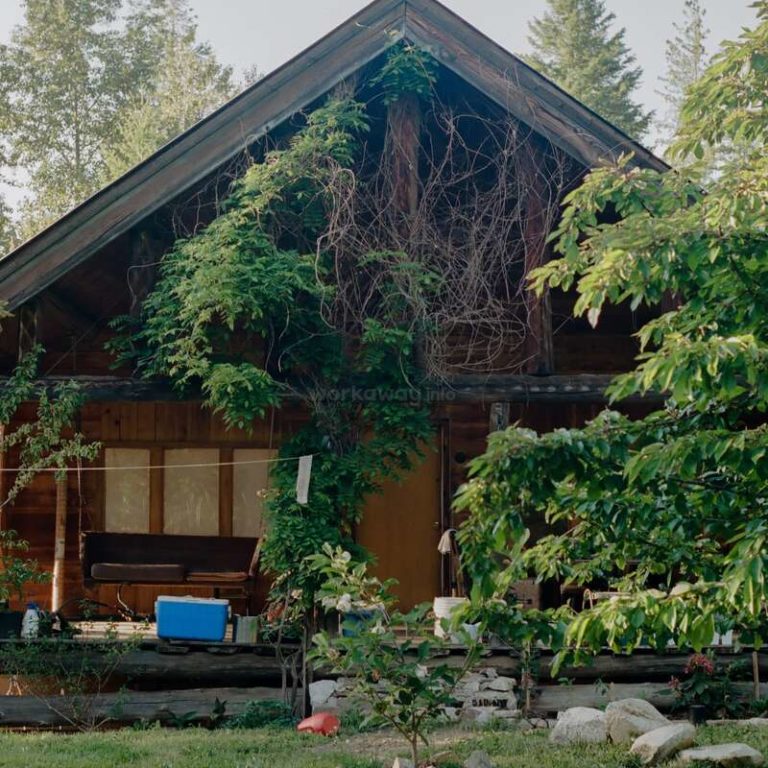Off-grid living offers a unique approach to achieving well-being by embracing simplicity and rejecting consumerist culture.
By living off the grid, individuals can escape the burden of constant connectivity and material possessions, allowing them to focus on what truly matters – their health, relationships, and personal fulfillment.
This lifestyle choice emphasizes the importance of community building, sustainability, and mindfulness practices as a means of attaining well-being.
We will explore how off-grid living can help individuals achieve balance in their lives and prioritize their well-being above all else.
Embrace minimalism
Off-grid living is all about simplifying your life and living within your means. Start by decluttering your home and getting rid of items you no longer need or use.
By decluttering your home and getting rid of items you no longer need or use, you can significantly reduce your energy consumption, lower your carbon footprint, and simplify your daily routine.
This not only benefits the environment but also enhances your overall well-being and quality of life.
To start your off-grid journey, begin by assessing your current lifestyle and identifying areas where you can simplify.
Start with the basics: declutter your home, reduce your wardrobe, and eliminate unnecessary items.
Consider implementing a one in, one out policy, where for every new item you bring into your home, you must first get rid of an old one.
This will help you maintain a balanced and sustainable level of possessions.
As you declutter, consider repurposing or repurposing items that still have value.
For example, consider turning old t-shirts into cleaning rags, or using glass jars as storage containers.
This will not only reduce waste but also save you money in the long run.
By simplifying your life and living within your means, you can experience the numerous benefits of off-grid living, including reduced stress, lower bills, and a more sustainable lifestyle.
So, take the first step today and start decluttering your home – your wallet and the environment will thank you!
Living space
Optimize your living space by using multi-functional furniture, efficient storage solutions, and by utilizing natural light and ventilation.
To optimize your living space, consider using multi-functional furniture that serves multiple purposes.
For example, a sofa bed can replace a traditional sofa and bed, saving space and money.
Similarly, a dining table with storage can double as a workspace or study area.
In addition, invest in efficient storage solutions like shelves, drawers, and baskets to keep your belongings organized and out of sight.
By utilizing natural light and ventilation, you can also improve the ambiance of your space.
Open curtains and blinds during the day to allow sunlight to pour in, and use ceiling fans or windows to circulate air and keep your space cool and well-ventilated.
These simple but effective strategies can help create a functional, comfortable, and aesthetically pleasing living space that maximizes the available space and minimizes clutter.
Renewable energy
Embrace renewable energy sources such as solar, wind, and hydro power to reduce your reliance on public utilities. This not only helps the environment but also saves you money in the long run.
Embracing renewable energy sources such as solar, wind, and hydro power is a strategic move towards a more sustainable and cost-effective future.
Not only does this transition help the environment by reducing our reliance on fossil fuels and lowering carbon emissions, but it also saves you money in the long run.
By investing in renewable energy systems such as solar panels or wind turbines, you can generate your own power and reduce your reliance on public utilities.
This not only reduces your energy bills but also provides a reliable source of energy, free from the volatility of fossil fuel prices.
Many governments offer incentives and tax credits for those who adopt renewable energy sources, further sweetening the deal.
So, not only is embracing renewable energy sources a smart choice for the environment, but it also makes economic sense.
Make the switch today and enjoy the long-term benefits of clean, sustainable energy.
Water conservation
Implement water-saving practices such as collecting rainwater, using grey water, and installing low-flow fixtures to conserve one of our planet’s most precious resources.
Implementing water-saving practices is an essential step towards conserving one of our planet’s most precious resources.
Collecting rainwater is a simple yet effective way to reduce your water usage.
You can install rainwater harvesting systems that collect and store rainwater for use in flushing toilets, washing clothes, and watering plants.
Using grey water – or wastewater from sinks, showers, and washing machines – can also be utilized for irrigation and flushing toilets.
Another practical measure is installing low-flow fixtures such as showerheads, faucets, and toilets.
These fixtures use significantly less water while still providing the same level of functionality and comfort.
For instance, installing a low-flow showerhead can save up to 2.5 gallons of water per minute, while a dual-flush toilet can save up to 20 gallons of water per day.
By adopting these water-saving practices, you can help reduce your household’s water consumption and contribute to the preservation of this vital resource.
Waste management
Implement a zero-waste policy by composting organic waste, recycling paper and plastic, and disposing of non-biodegradable waste responsibly.
To achieve a zero-waste policy, we must adopt a multi-faceted approach that tackles the various sources of waste generated in our daily lives.
First and foremost, we must prioritize composting of organic waste, such as food scraps and yard trimmings.
This can be done through the use of backyard composters or community composting programs, which break down these materials into nutrient-rich soil amendments that can be used in our gardens and parks.
Next, we must focus on recycling paper and plastic products, such as newspapers, cardboard, plastic bottles, and containers.
This can be achieved through the use of curbside recycling programs or drop-off centers, where these materials can be collected and processed into new products.
We must responsibly dispose of non-biodegradable waste, such as electronic devices and batteries, through designated drop-off locations or specialized recycling programs.
By implementing these strategies, we can significantly reduce the amount of waste that ends up in landfills and instead create a more sustainable and environmentally conscious community.
Grow your own food
Cultivate your own food using sustainable farming practices such as permaculture, biodynamic farming, and organic gardening. This not only provides you with fresh produce but also reduces your carbon footprint.
Growing your own food using sustainable farming practices is not only a delicious and cost-effective option, but it also has a profound impact on the environment.
By implementing permaculture, biodynamic farming, and organic gardening techniques, you can cultivate a thriving food system that is rich in biodiversity and free of harmful chemicals.
Not only will this provide you with an abundance of fresh, delicious produce, but it will also help to reduce your carbon footprint and contribute to a healthier, more sustainable future.
One of the key benefits of sustainable farming practices is their ability to promote biodiversity.
By creating a diverse and thriving ecosystem, you can attract a variety of beneficial insects, animals, and microorganisms to your garden.
This not only helps to control pests and diseases, but it also creates a balanced and resilient food system that is better able to adapt to changes in the environment.
In addition to promoting biodiversity, sustainable farming practices also help to reduce your carbon footprint.
By avoiding the use of synthetic fertilizers and pesticides, you can significantly reduce your greenhouse gas emissions and minimize your impact on the environment.
By using compost and other natural soil amendments, you can improve the health and fertility of your soil, which can help to sequester carbon and mitigate the effects of climate change.
Furthermore, sustainable farming practices can also help to improve the taste and nutritional value of your food.
By growing a diverse selection of fruits, vegetables, and herbs using natural and organic methods, you can create a more flavorful and nutritious diet that is rich in vitamins, minerals, and antioxidants.
Plus, the fresh air and sunlight of outdoor gardens can help to boost your mood and overall well-being.
So, if you’re looking to improve your health, reduce your carbon footprint, and support a more sustainable food system, then consider starting your own sustainable garden or purchasing from local farmers who practice regenerative agriculture.
By adopting sustainable farming practices, you not only provide yourself with fresh and healthy food, but you also create a more resilient and sustainable food system for future generations.
Permaculture, biodynamic farming, and organic gardening are all methods that prioritize soil health, biodiversity, and the use of locally sourced materials, which not only reduces carbon emissions but also improves soil quality and increases crop yields.
These methods also promote the use of natural pest control methods, such as beneficial insects and fungi, which can reduce the need for chemical pesticides and maintain ecological balance.
Moreover, sustainable farming practices can also have a positive impact on your mental and physical health.
The fresh air and sunlight of outdoor gardens can boost your mood and overall well-being, while the physical activity involved in tending to your garden can improve your cardiovascular health and strengthen your muscles.
The satisfaction of growing your own food and the sense of accomplishment that comes with it can also improve your self-esteem and self-confidence.
All of these benefits can be especially important during times of stress or uncertainty, such as during a pandemic.
Therefore, taking care of your garden not only provides you with a sustainable source of food, but it also has the potential to improve your overall health and well-being.
To get started with sustainable farming practices, consider conducting research on permaculture, biodynamic farming, and organic gardening to learn more about the methods and techniques involved.
You may also consider joining local gardening or permaculture groups to connect with other like-minded individuals and learn from their experiences.
You may consider consulting with experts in the field, such as gardening professionals or agricultural specialists, to get personalized advice and guidance on how to best implement sustainable farming practices in your specific region and climate.
Remember, taking care of your garden requires a long-term commitment and regular maintenance, but the benefits to your physical, mental, and emotional health can be profound.
Cultivating your own food using sustainable farming practices such as permaculture, biodynamic farming, and organic gardening not only provides you with a sustainable source of healthy food, but it also has the potential to improve your overall health and well-being.
By taking care of your garden, you can experience increased self-esteem and self-confidence, as well as a sense of accomplishment and fulfillment.
These benefits can be especially important during times of stress or uncertainty, such as during a pandemic, as they can provide a sense of stability and control.
Sustainable farming practices such as permaculture and biodynamic farming focus on working with nature to create a balanced and thriving ecosystem, which can lead to increased mindfulness, reduced stress, and a deeper connection to nature.
So, whether you have a small balcony garden or a larger backyard, take advantage of this opportunity to cultivate your own food and experience the numerous physical, mental, and emotional health benefits that come with it.
Start small, be patient, and enjoy the process of nurturing your garden and the delicious, healthy food it provides.
Eat locally
Support local farmers by buying their produce, meat, and dairy products. This not only reduces your carbon footprint but also helps preserve local agricultural traditions and strengthens your community.
Buying local produce, meat, and dairy products is a powerful way to support your community and reduce your carbon footprint.
By choosing to purchase these items from local farmers, you are not only getting fresh, high-quality products, but you are also helping to preserve local agricultural traditions and strengthen your community.
Local farmers use sustainable farming practices that are better for the environment, and by supporting them, you are contributing to a healthier and more resilient food system.
Buying locally produced food helps to keep money within your community, which can have a positive impact on the local economy.
Furthermore, supporting local farmers helps to preserve the unique cultural heritage of your region, such as traditional farming methods and heirloom varieties of crops.
By making a conscious decision to buy local, you are not only improving your own health and well-being, but you are also helping to create a stronger, more sustainable community.
Community engagement
Building a strong community is important for off-grid living. Engage with your neighbors, attend local events, and participate in community projects to foster a sense of belonging and support.
Building a strong community is important for successful off-grid living.
By engaging with your neighbors, attending local events, and participating in community projects, you can foster a sense of belonging and support that is essential for thriving in an off-grid environment.
Engaging with your neighbors can involve simple acts like sharing tools or knowledge, hosting potlucks or work parties, or participating in community clean-up initiatives.
Attending local events such as farmers’ markets, agricultural fairs, or sustainability workshops can help you connect with like-minded individuals and stay informed about relevant topics.
Participating in community projects like gardening collaboratives, energy cooperatives, or waste management initiatives can not only provide practical benefits but also help to build trust and cooperation among community members.
By actively engaging with your community, you can create a strong support network that will be essential for navigating the challenges and opportunities of off-grid living.
Want More? Dive Deeper Here!
Hey there! If you’re the type who loves going down the rabbit hole of information (like we do), you’re in the right spot. We’ve pulled together some cool reads and resources that dive a bit deeper into the stuff we chat about on our site. Whether you’re just killing time or super into the topic, these picks might just be what you’re looking for. Happy reading!






